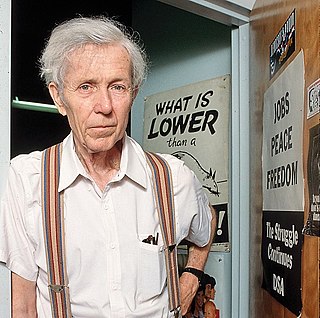A Quote by Carl Sagan
Virtually every major technological advance in the history of the human species - back to the invention of stone tools and the domestication of fire - has been ethically ambiguous.
Related Quotes
Virtually every major technological advance in the history of the human species- back to the invention of stone tools and the domestication of fire has been ethically ambiguous. If you want to reason about faith, and offer a reasoned (and reason responsive) defense of faith as an extra category of belief worthy of special consideration, I'm eager to play. I certainly grant the existence of the phenomenon of faith; what I want to see is a reasoned ground for taking faith seriously as a way of getting to the truth , and not, say, just as a way people comfort themselves and each other
In a single generation, the Internet has given to virtually every person on the face of the earth the ability to communicate with fellow human beings on virtually any topic, at any time, and in every nook and cranny on the globe. This magnificent invention has done this without succumbing to government control.
The human species does not necessarily move in stages from progress to progress ... history and civilization do not advance in tandem. From the stagnation of Medieval Europe to the decline and chaos in recent times on the mainland of Asia and to the catastrophes of two world wars in the twentieth century, the methods of killing people became increasingly sophisticated. Scientific and technological progress certainly does not imply that humankind as a result becomes more civilized.
With regard to the alternatives, we already have them. The cellular and genetic lines of research in humans are the most promising. AIDS is caused by a virus, so it makes sense to study the virus, not chimpanzees. We have learned virtually nothing about AIDS from the chimpanzee. Every major advance in AIDS research ... has come from human studies.
Man makes history; woman is history. The reproduction of the species is feminine: it runs steadily and quietly through all species, animal or human, through all short-lived cultures. It is primary, unchanging, everlasting, maternal, plantlike, and cultureless. If we look back we find that it is synonymous with life itself.
I know when I grew up, it was, if it was daylight outside, get outside. Well, now, with the technological age of computers and everything, everyone's inside virtually going everywhere they want to go, virtually having relationships, virtually traveling across the neighborhood, virtually going to that island.
Every major technological step forward has profoundly changed human society - that's how we know they're major, even if we don't always realise it at the time. Farming created cities. Writing, followed eventually by printing, vastly increased the preservation and transmission of cultural information across time and space.
If we don't accept the uncomfortable proposition that every perpetrator of virtually every act of evil in our history has been a human being like us, then we actually foreclose the possibility of understanding how we do this to one another and therefore make it impossible to figure out how we might prevent these things.





































